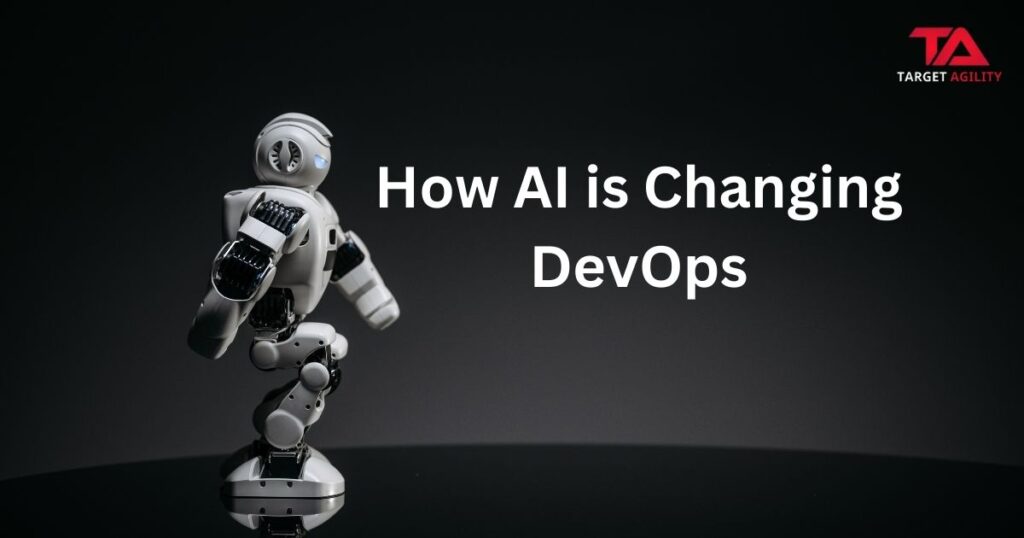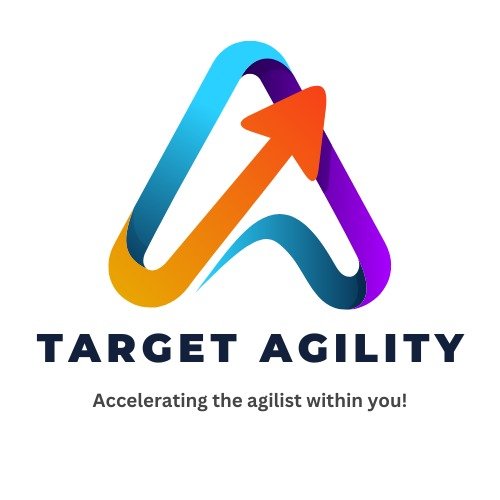RetroAI++ and the Future of Sprint Planning & Retrospectives

Agile teams are always under pressure to work faster, deliver more, and keep improving. That’s where RetroAI++ comes in—an AI tool built to help with Sprint Planning and Retrospectives. It promises smarter insights, quicker prep, and better follow-ups. But the big question is: is RetroAI++ a real game-changer, or just another shiny tool? What Is RetroAI++? RetroAI++ uses AI to help Scrum teams with their key ceremonies. It can: Basically, it’s like an assistant that organizes data and throws out suggestions. Sounds helpful, especially for busy Scrum Masters. But let’s break down where it works—and where it doesn’t. Where RetroAI++ Helps 1. Sprint Planning Prep It can highlight top backlog items, flag dependencies, and suggest team capacity. That means the team spends less time warming up and more time deciding. 2. Retro Pattern Spotting Instead of digging through notes, RetroAI++ can find repeated issues—like delays, blockers, or morale dips—and bring them up quickly. 3. Action Item Tracking Too often, retro action items get forgotten. RetroAI++ can remind teams and check whether changes are actually happening. 4. Less Admin Work Scrum Masters often waste time setting up boards or writing summaries. RetroAI++ can handle that, letting them focus on coaching and people instead of paperwork. Where RetroAI++ Fails But let’s be real—AI can’t replace people talking honestly. Here’s the danger zone: What the Future Looks Like RetroAI++ is just the start. More AI tools will show up in Agile rituals—spotting patterns, writing summaries, and nudging teams. That’s fine, but let’s not fool ourselves. AI can say, “Your velocity is dropping.” But only people can say, “We’re tired and need to slow down.”AI can flag testing delays. But only people can decide, “Let’s cross-train and fix this together.” Agile is about people, not patterns. How to Use RetroAI++ the Right Way Final Word RetroAI++ is useful—it cuts busywork, finds trends, and keeps action items on track. But if you treat it like a replacement for real discussion, you’re missing the point of Scrum. The future of Sprint Planning and Retrospectives isn’t about AI running the show. It’s about AI clearing the noise so humans can do the hard, meaningful work: trusting each other, speaking openly, and always improving. So go ahead and use RetroAI++. Just remember: AI can support Agile—but only people make it Agile.
AI in Scrum: Help or Harm?

AI is showing up everywhere in Scrum and Agile teams right now. People use ChatGPT to write user stories, generate acceptance criteria, or even run retrospectives. At first glance, it feels smart and efficient. But here’s the truth: most of the time, you’re just letting a statistical parrot into your team—and it’s quietly messing things up. What’s a “Statistical Parrot”? Big AI tools like ChatGPT don’t actually think. They don’t understand your customer, your business, or your sprint goal. They just predict the next word in a sentence, based on patterns in data. In short: they repeat things that sound right but often miss the real meaning. Scrum, however, is built on thinking, learning, and adapting. If your team starts leaning on AI to make choices, you’re swapping real insight for random predictions. That’s not agility—it’s fake speed. How AI Goes Wrong in Scrum 1. Bad Backlogs, Quickly Made Product Owners often use AI to write user stories. The backlog looks full and professional, but it’s usually shallow, repetitive, and disconnected from real customer needs. A backlog full of AI fluff only creates confusion and wasted sprints. 2. Empty Retrospectives Some teams let AI summarize feedback or suggest action items. But retrospectives are supposed to be about honesty, teamwork, and tough conversations. If you let a bot decide what matters, the team avoids reflection—and the chance to actually improve. 3. Fast but Pointless Work AI helps you write tasks, test cases, and documents faster. But if you’re rushing in the wrong direction, speed is useless. Scrum isn’t about how fast you work—it’s about creating real value. 4. Losing Human Skills Negotiating priorities, handling conflict, and thinking creatively are human skills. If you outsource too much of that to AI, your team gets weaker. Over time, you’ll lose the ability to think critically and work through problems together. Where AI Can Help I’m not saying AI has no place in Scrum. It does—but as a helper, not as a team member. It can save time by drafting templates, analyzing data, or suggesting options. But the real decisions, discussions, and accountability must come from humans. The Scrum Guide makes it clear: Scrum Teams are made of people. AI can assist, but it cannot replace teamwork, trust, or judgment. What Teams Should Do Instead Here’s the no-BS advice: Don’t Let the Parrot Lead Scrum works because of teamwork, courage, and real learning. A statistical AI parrot can’t do any of that—it just repeats patterns. If your team starts letting AI replace tough conversations and clear thinking, you’re not becoming “AI-powered.” You’re just covering up weak agility with shiny tech. Use AI, sure—but keep it in its place. Humans lead. Parrots repeat. Don’t confuse the two.
Automated Standups: The End of Daily Scrum as We Know It?

Daily Scrum meetings have been part of Agile for years. The goal is simple: help the team stay aligned, spot issues early, and plan the day. But let’s be honest — in many teams, daily standups feel boring, repetitive, or like a waste of time. Now, with AI and automation tools, some teams are skipping live meetings and using bots instead. This raises an important question: Do we still need live Daily Scrums? Or is automation a better option? Why We Have Daily Scrums Originally, the Daily Scrum was created to: It’s meant to be short (15 minutes) and helpful — not a long meeting or a status update for the manager. But in real life, things often go off track. People talk too much. Some stay silent. Others just show up out of habit. What Are Automated Standups? Automated standups use tools like Geekbot, Standuply, or DailyBot to collect daily updates. Team members answer three questions in writing: The tool gathers all answers and posts them in a team chat, like Slack or Teams. Some tools can also spot patterns — like recurring issues or signs of frustration. Benefits of Automated Standups Downsides of Using Bots So, Are Daily Standups Going Away? Not exactly — but they are changing. Automated standups work well for mature, remote teams who know how to stay focused and responsible. These teams don’t need a live meeting to stay in sync. For them, automation saves time and keeps things simple. But for new teams, teams with communication problems, or teams still learning Agile, bots alone won’t cut it. These teams need real interaction to build trust and stay connected. Conclusion Automated standups aren’t killing the Daily Scrum — they’re just changing how it’s done. For some teams, bots are a great way to save time and stay on track. For others, they could lead to silence, confusion, or lack of connection. In the end, it doesn’t matter whether you meet in-person, on Zoom, or through a Slack bot. What matters is that the team stays aligned, solves problems fast, and works toward the same goal. Choose the method that helps your team do that best.
Will AI Replace the Scrum Master? Here’s What the Data Really Tells Us

With artificial intelligence growing fast, a lot of people are asking a tough question: Will AI take over roles like the Scrum Master? It’s a fair concern. After all, many tasks that once needed humans are now done faster and cheaper by machines. But when it comes to Agile teams, things aren’t so simple. To understand the risk, we first need to get clear on what a Scrum Master actually does. This role isn’t just about running meetings or updating Jira boards. A good Scrum Master helps the team stick to Agile practices, guides daily standups, sprint planning, and retrospectives, clears roadblocks that slow progress, protects the team from distractions, and constantly looks for ways to improve how the team works. Some of these tasks are repetitive, structured, and easy to automate — which is exactly where AI is already stepping in. In today’s Agile teams, AI tools are doing a decent job handling things like automated standups, reporting, and backlog suggestions. Tools like Geekbot or Standuply can collect daily updates from team members and point out common blockers. ChatGPT-like systems can write summaries of retrospectives, generate reports, and even help rewrite vague user stories with clearer language and acceptance criteria. That’s not science fiction — it’s already happening. AI is absolutely reducing the manual workload for Scrum Masters. But that doesn’t mean the role is dead. There are still critical things AI can’t do — and probably won’t be able to for a long time. For example, AI can’t resolve team conflicts in a real, human way. It doesn’t understand workplace politics or team emotions. It won’t notice when your developers are burned out but hiding it. And it certainly won’t know how to coach a team that’s just going through the motions without real Agile mindset. If your team is 100% remote, doing repetitive work, and already well-organized, AI might reduce the need for a full-time Scrum Master. But remove the human element altogether? That’s not realistic — unless your Scrum Master is already just checking boxes. Let’s look at the numbers. A 2024 report from Gartner says that AI could handle 30% of Agile documentation and reporting by 2026. That’s a chunk, but it still leaves 70% of the job in human hands. A 2023 Scrum.org survey found that while 80% of Scrum Masters believe AI can help them, only 12% feel it threatens their job. Most see AI as a tool, not a threat. So what’s the real answer? No, AI won’t fully replace the Scrum Master. But yes — it will force Scrum Masters to level up. If all you do is run meetings and push updates, AI can and should replace you. But if you’re someone who leads, mentors, and drives change in your team, AI will actually make you more effective. Conclusion:AI is changing the game, but it’s not removing the players — at least not the ones who bring real value. The Scrum Master role is evolving, and only those who adapt will stay in the game. Learn to use AI, sharpen your people skills, and focus on the parts of the job no machine can do. If you don’t, it won’t be AI that replaces you — it’ll be someone who did both better.
How AI Can Help You Write Better User Stories

In Agile teams, writing good user stories is a big part of getting things done right. A user story tells the team what the user wants and why. But let’s be honest—writing clear and helpful user stories isn’t always easy. That’s where AI tools like ChatGPT or Jira’s AI assistant can really help. What’s a User Story, Again? A user story is a short sentence that explains a feature from the user’s point of view. For example: As a user, I want to reset my password so that I can log in if I forget it. This simple format helps the team understand what to build and why. Along with the story, we usually write acceptance criteria, which are the rules that tell us when the work is complete. The Problem with Writing Stories Sometimes, people write stories that are too vague or confusing. Some common issues include: These issues can slow down the team and lead to misunderstandings. How AI Can Help AI tools can be used to: Let’s go through a few examples. 1. Writing a New User Story Let’s say you need a story about password reset. You can type a simple request into an AI tool like: Prompt: I want users to reset their passwords through email. AI Output: As a registered user, I want to reset my password through email so that I can access my account if I forget it. Quick and easy! 2. Getting Help with Acceptance Criteria After writing the story, you can ask AI to suggest when the story should be considered “done.” It might return something like: Now your team knows exactly what to build and test. 3. Fixing Old Stories Got stories in your backlog that don’t make sense anymore? Copy them into the AI tool and ask it to rewrite them more clearly. AI can fix the format, simplify the language, and add missing parts. 4. Keeping Things Consistent If your team uses a specific format for stories, AI can help make sure everything stays consistent. It can even remind you to include things like user roles, value, and acceptance rules. A Few Tips AI is helpful, but it’s not perfect. Here are some tips: Conclusion AI tools can make writing user stories faster and easier. They help you stay clear, complete, and consistent—especially when you’re juggling a lot of work. Whether you’re a Product Owner, Scrum Master, or team member, using AI can save time and improve communication. The better your stories, the smoother your sprints—and AI can help you get there.
AI-Powered Scrum Tools

Scrum has changed how teams work together to deliver projects, especially in software development. By focusing on short-term goals, flexible planning, and ongoing improvement, Scrum helps teams work more efficiently. Now, artificial intelligence (AI) is making Scrum even better by offering tools that help predict problems, assign tasks, and make smarter decisions. Here, we’ll look at how AI-powered tools improve Scrum, including predictive analytics, smart task assignment, and more. 1. Predictive Analytics: Planning Ahead AI tools with predictive analytics give teams useful insights into how projects are going. These tools analyze past data, team performance, and current trends to predict issues like delays or resource shortages. For example, tools like Jira Advanced Roadmaps use AI to estimate how long tasks will take, highlight task dependencies, and create better sprint plans. This helps Scrum Masters and Product Owners fix problems early and keep the team on track. AI also helps assess risks. It can point out potential issues like underestimated tasks or overloaded team members, making it easier to adjust plans. 2. Smart Task Assignment: Working Smarter Assigning tasks in Scrum means balancing workloads, skills, and availability. AI tools make this easier by analyzing team members’ skills and past work to suggest the best task assignments. For example, tools like Trello with Butler AI can recommend who should handle specific tasks based on their expertise. Similarly, GitHub Copilot can suggest the best contributors for certain coding tasks. This saves time and ensures everyone is working on tasks that match their skills, boosting productivity. 3. Better Sprint Planning AI makes sprint planning faster and more accurate by automating backlog prioritization and effort estimation. AI tools rank tasks based on factors like customer impact and technical dependencies. Tools like ClickUp’s AI Assistant can even create draft sprint plans that match the team’s capacity. This reduces time spent in meetings while keeping plans reliable and effective. 4. Real-Time Tracking and Reporting Tracking progress and creating reports can take a lot of time. AI tools make this easier by offering real-time updates and automatic reports. These tools keep everyone informed and highlight any deviations from sprint goals. For instance, Monday.com uses AI to create live dashboards that show project progress and suggest solutions to problems. Automated reports save time for Scrum Masters, letting them focus on team collaboration. 5. Improved Communication and Teamwork AI tools help teams communicate and collaborate better. AI chatbots integrated with tools like Slack or Microsoft Teams can answer questions, remind team members about tasks, or even run virtual stand-ups. For example, Standuply’s AI Assistant collects updates from team members and summarizes them. This saves time and ensures everyone stays on the same page, even in different time zones. 6. Understanding Team Morale Team morale is key to Scrum success. AI tools with sentiment analysis can monitor team communication to understand how everyone is feeling and spot signs of burnout or frustration. Tools like TeamMood or Officevibe analyze team sentiment and provide feedback. Scrum Masters can use this information to address issues early, creating a happier and more productive team environment. 7. Smarter Retrospectives AI improves Scrum retrospectives by identifying trends in team performance and offering actionable suggestions. Tools like Parabol analyze sprint data to highlight what went well and what needs improvement. This helps teams learn from each sprint and continuously improve their workflow. Conclusion: The Future of AI in Scrum AI is changing how Scrum teams work, making processes faster, smarter, and more collaborative. From smarter task assignment to better morale tracking, AI-powered tools help teams achieve better results with less effort. As AI evolves, its role in Scrum will only grow. Teams that embrace these tools will stay ahead, delivering high-quality work while fostering a culture of improvement and adaptability. Adopting AI tools isn’t just a step forward—it’s a leap into the future of teamwork.
How AI is Changing DevOps: A Simple Guide

Artificial Intelligence (AI) is making big changes in many areas, including software development, where it’s transforming DevOps. DevOps combines development and operations to make software delivery and infrastructure management smoother. AI is helping DevOps teams by making processes smarter, predicting problems, and improving decision-making. Here’s a look at how AI is reshaping DevOps and the future of software development. 1. Boosting Automation Automation is a key part of DevOps, and AI makes it even better. While traditional automation tools follow set rules, AI can learn from data and adapt its actions. For example, AI can automate routine tasks like deploying code, setting up infrastructure, and configuring environments more accurately. By analyzing past data, AI can suggest the best setups and handle complex tasks that were once manual, reducing human error and increasing efficiency. 2. Predicting and Preventing Problems AI’s ability to predict and prevent issues is one of its biggest benefits in DevOps. AI can look at data from system logs, performance metrics, and user feedback to find patterns and spot potential problems before they happen. This allows teams to fix issues before they affect users, reducing downtime and making systems more reliable. 3. Smarter Monitoring and Analytics AI improves monitoring and analytics by giving deeper insights into how systems are performing. Traditional tools can generate a lot of data that’s hard to interpret. AI-powered tools can sift through this data, spot trends, and provide useful insights in real time. For example, AI can identify unusual behavior or performance drops that might be missed by traditional tools and suggest fixes. 4. Faster Incident Management AI helps manage incidents more effectively by quickly identifying and resolving issues. When a problem occurs, AI can analyze the data to find the root cause faster than manual methods. It can also automate the solution process, which speeds up resolution, reduces impact on users, and allows DevOps teams to focus on other important tasks. 5. Better Resource Management AI also improves resource management by optimizing how resources are allocated and scaled. It can analyze usage patterns and predict future needs, adjusting resources in real time based on current demands. This helps ensure that applications have the resources they need while avoiding excess costs and making cloud infrastructure more efficient. 6. Stronger Security Security is crucial in DevOps, and AI enhances it by spotting vulnerabilities and threats more effectively. AI security tools analyze network traffic, user behavior, and system access to detect suspicious activities. By constantly learning about new threats, AI provides better security measures and helps DevOps teams respond quickly to potential dangers. Conclusion AI is transforming DevOps by improving automation, predicting and preventing problems, enhancing monitoring, optimizing resources, and boosting security. As AI technology advances, it will continue to drive improvements in efficiency and performance in DevOps. By using AI, DevOps teams can streamline their work, reduce risks, and deliver software faster, leading to a more agile and effective development process. AI is a key player in the future of DevOps, making it smarter and more efficient.

